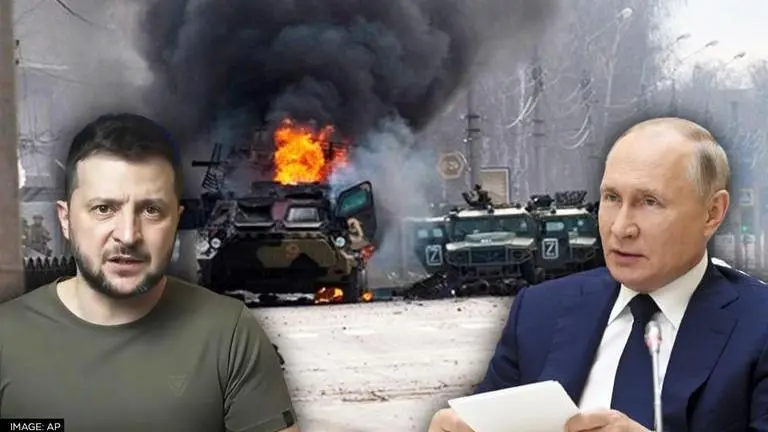Updated 24 September 2022 at 22:42 IST
'Russian mobilization system 'struggling' to execute Vladimir Putin's plan,' says ISW
The ISW has said that mobilization will likely fail to produce even the low-quality reserve forces unless they "rapidly fix fundamental and systemic problems.
- World News
- 3 min read

Russian President Vladimir Putin's mobilization task will "likely fail to produce mobilized reserve forces," the Institute for the Study of War (ISW) has said. The ISW has said that mobilization will likely fail to produce even the low-quality reserve forces unless they "rapidly fix fundamental and systemic problems. The latest assessment of ISW comes after Putin ordered partial mobilization in Russia on September 21.
"The Russian mobilization system is struggling to execute the task Russian President Vladimir Putin set and will likely fail to produce mobilized reserve forces even of the low quality that Putin’s plans would have generated unless the Kremlin can rapidly fix fundamental and systemic problems," the ISW has said.
It noted that Putin and Russian Defence Minister Sergey Shoigu announced that Moscow's troops would mobilize combat-ready reservists to quickly "stabilize the frontlines and regain the initiative on the battlefield." The ISW underscored that the Russian pro-war bloggers and social media users have expressed concerns over "unlawful" mobilization practices. In addition, they also demonstrated "serious Russian mobilization problems" on the second day of the effort.
According to ISW, the challenges and errors faced in the first days of working on the partial mobilization were not surprising. However, it stressed that Russian military mobilization was not "better prepared" for war than the Russian armed forces.
The Russian mobilization system will likely fail to produce mobilized reserve forces even of the low quality that #Putin’s plans would have generated unless the #Kremlin can rapidly fix fundamental and systemic problems. https://t.co/hkafOlwBXI pic.twitter.com/XDQcmsXYy4
— ISW (@TheStudyofWar) September 24, 2022
The statements of Shoigu and Putin which mention categories of men who have been excluded from mobilization have also led to anger and mistrust towards the Kremlin. Russia announced its decision to exempt some people working in certain high-tech industries and financial systems from partial mobilization. The Russian Defence Ministry said that the decision was taken to ensure the smooth functioning of certain high-tech industries and financial systems in Russia. The high-tech industries include the Information Technology sector, telecom operating companies and broadcasters of TV channels.
Advertisement
The ISW highlighted that the "disparate" mobilization processes across different regions "may exacerbate social tensions" in Russia which have already started by perceiving inequalities in the creation of volunteer battalions. It said that protests and attacks against recruiting centres, and vandalism have taken place in Russia in the first 48 hours after the announcement of partial mobilization.
"The highly nationalist and pro-war milblogger community is calling on the Kremlin to address these mobilization issues rapidly, but the Kremlin is unlikely to be able to meet their demands," the ISW said.
Putin orders partial mobilization
In his address to the nation, Vladimir Putin stated that he has signed a decree on the partial mobilization in Russia. The Kremlin leader stressed that the decision was "fully adequate to the threats" faced by Russia and to protect their territory and to ensure the security of people in Russia and liberated regions.
Advertisement
Putin said that Russia will do "everything to ensure safe conditions for holding referendums." Issuing a stern warning to the West, he remarked that Russia will use "all the means" to protect its territory and asserted that "it's not a bluff." He also accused the West of aiming to "weaken, divide and eventually destroy" Russia.
Image: AP
Published By : Apoorva Kaul
Published On: 24 September 2022 at 22:42 IST
